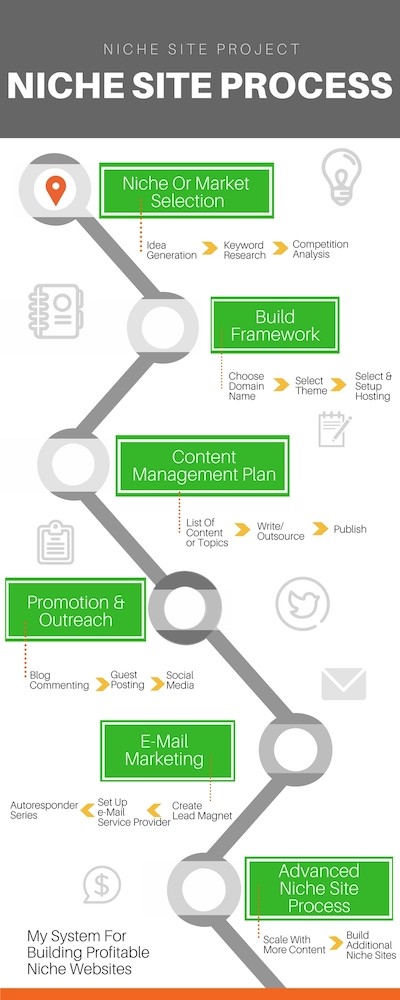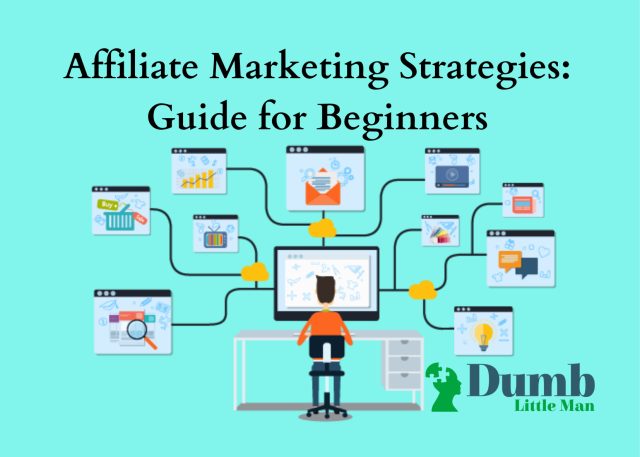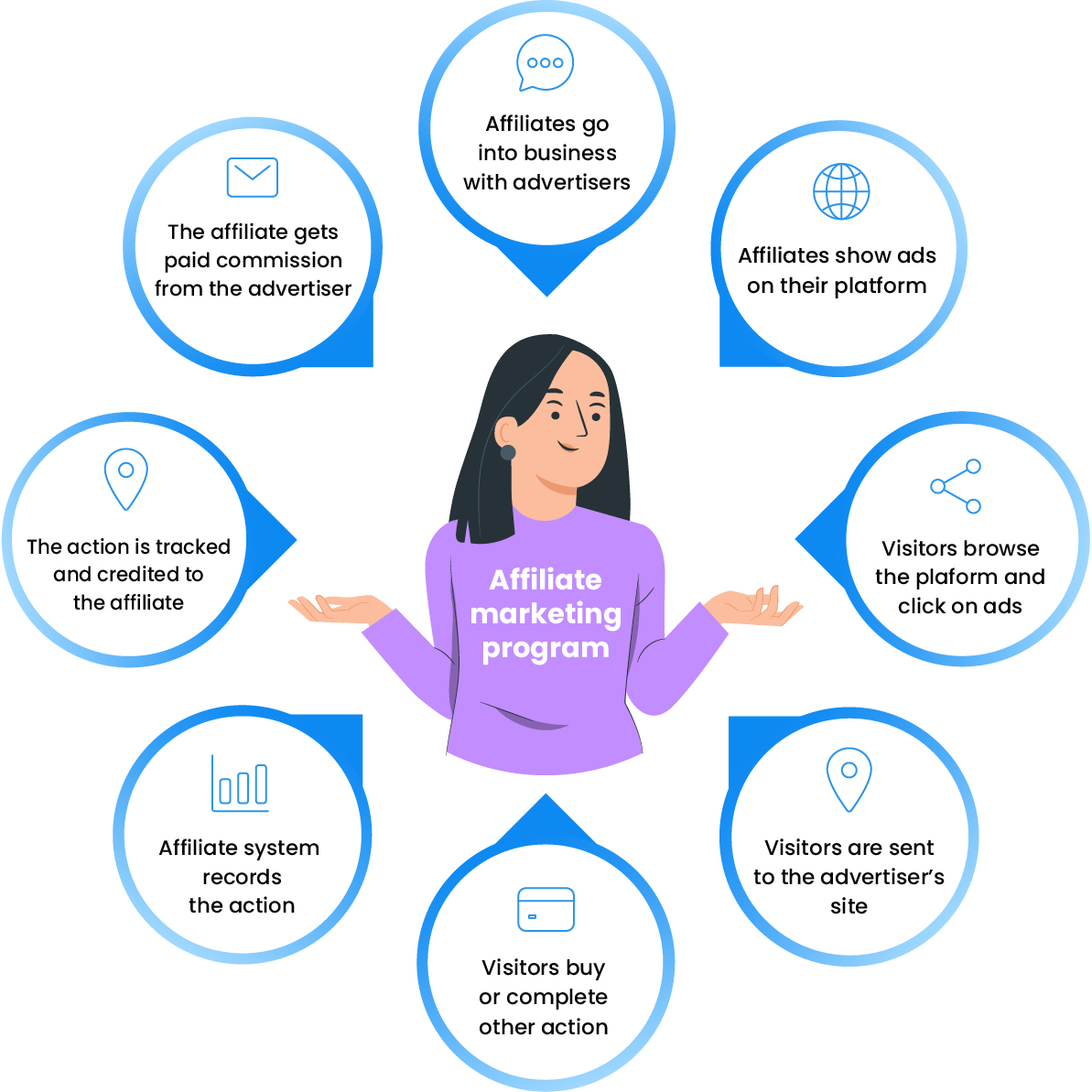Writing for affiliate sites can be a daunting task, but with the right strategies, it can become a rewarding and profitable venture. Whether you’re an experienced writer or just starting out, these effective strategies will help you take your affiliate site content to the next level. From understanding your audience to creating compelling and engaging content, this product offers a comprehensive guide that will equip you with the necessary tools and techniques to succeed in the world of affiliate writing. So, if you’re ready to enhance your writing skills and maximize your earning potential, this is the product for you. Get ready to unlock the secrets of successful affiliate site writing and watch your online presence grow.
Choosing the Right Affiliate Niche
When it comes to choosing the right affiliate niche, research is key. You need to understand what niches are popular and in demand in order to maximize your chances of success. Take the time to explore different industries and see what products and services are trending. Look at search trends, online forums, and social media discussions to get a sense of what people are interested in.
Once you have identified popular niches, it’s important to assess the level of competition in each one. A highly competitive niche can make it difficult for you to stand out, especially if you are just starting out. Keep in mind that competition is not necessarily a bad thing – it can also indicate a thriving market. However, you need to weigh the pros and cons and determine if you have the resources and strategy to make your mark in that niche.
Ultimately, you want to identify profitable products that align with your interests and expertise. Look for products with high demand and good commission rates. Consider the target audience and whether they have a genuine need or desire for the product. Remember, choosing the right affiliate niche is the foundation for a successful affiliate marketing business.
Understanding the Target Audience
To effectively market products as an affiliate, you need to understand your target audience. Conducting thorough market research is essential to gain insights into their preferences, behaviors, and needs. Start by identifying the key demographics of your target audience, such as age, gender, location, and interests. This will help you create customer personas that represent your ideal customers.
Creating customer personas involves developing detailed profiles of your target audience segments. Consider their motivations, challenges, and pain points. This will enable you to tailor your marketing efforts and offer solutions that resonate with them. For example, if your target audience consists of busy working professionals, you can focus on promoting products that save time or streamline their daily routines.
By understanding your audience’s needs, you can position yourself as a trusted source of information and recommendations. This builds credibility and fosters a strong connection with your target audience, increasing the likelihood of conversions and repeat business.

Setting Clear Goals and Objectives
Setting clear goals and objectives is crucial for running a successful affiliate marketing business. By defining what you want to achieve, you can create a roadmap for your efforts and measure your progress along the way.
First, define your conversion metrics. These metrics will vary depending on the affiliate program and the goals of the affiliate marketer. Some common conversion metrics include the number of sales, the number of leads generated, or the amount of revenue generated.
Once you have defined your conversion metrics, establish revenue targets. These targets should be ambitious yet achievable. It’s important to have a clear understanding of how much you aim to earn from your affiliate marketing efforts. This will guide your content creation and promotional strategies, ensuring that you are working towards a specific financial goal.
Creating a content strategy is another key component of goal setting. Determine what types of content you will produce, how often you will publish, and how you will promote it. Consistency is key when it comes to creating engaging content, so make sure to establish a realistic publishing schedule that aligns with your resources and availability.
Creating Engaging and Credible Content
Content is king in the world of affiliate marketing. To attract and retain your target audience, you need to create content that is both engaging and credible.
One effective content strategy is to write informative product reviews. In these reviews, highlight the features and benefits of the products you are promoting. Be honest and thorough, addressing any potential pros and cons. This will help your audience make informed purchasing decisions and build trust in your recommendations.
Crafting persuasive sales copy is another important aspect of creating engaging content. Use persuasive language and compelling storytelling to showcase the value of the products you are promoting. Show your audience how the product can solve their problems or enhance their lives. Remember to always disclose your affiliate relationship in a transparent and honest manner.
Providing value-added information is also crucial in building credibility. Go beyond simply promoting products and offer valuable insights, tips, and advice related to your niche. This positions you as an authority in your field and ensures that your audience keeps coming back for more.

Optimizing Content for SEO
Search engine optimization (SEO) is a crucial element in driving organic traffic to your affiliate site. By optimizing your content for relevant keywords, you can increase your visibility in search engine results pages and attract more potential customers.
Start by conducting keyword research and analysis to identify the most relevant keywords for your niche. Look for keywords that have good search volume and moderate competition. Use these keywords strategically in your content, including in your headings, subheadings, and meta descriptions.
Utilizing on-page SEO techniques is another important step in optimizing your content. This includes optimizing your page titles, meta tags, and URL structures. Incorporate your target keywords naturally throughout your content, without overdoing it. Make sure your website is user-friendly, with clear navigation and fast loading times.
Building quality backlinks is also a crucial aspect of SEO. Seek opportunities to obtain backlinks from reputable and relevant websites in your niche. This can be done through guest blogging, influencer collaborations, or creating valuable content that others will naturally want to link to.
Utilizing Social Media for Promotion
Social media offers a powerful platform for promoting your affiliate products and engaging with your target audience. By developing a social media strategy, you can effectively reach and connect with potential customers.
Start by building a social media strategy that aligns with your overall goals and target audience. Determine which platforms are most popular among your audience and focus your efforts there. Create a content calendar that outlines what types of content you will share, when, and how often.
Engage with your target audience by responding to comments and messages in a timely and friendly manner. Encourage interaction by posing questions, running contests, or sharing user-generated content. Make sure to share a mix of promotional and non-promotional content to keep your audience interested and engaged.
Leveraging influencer marketing is another effective way to promote your affiliate products on social media. Identify influencers within your niche who have a large and engaged following. Collaborate with them by offering incentives for promoting your products, such as exclusive discount codes or special offers for their followers. This can help you reach a wider audience and gain credibility through association with trusted influencers.

Implementing Email Marketing Campaigns
Email marketing is a highly effective strategy for promoting your affiliate products and nurturing relationships with your audience. By creating an email list and crafting compelling email content, you can stay top-of-mind and drive conversions.
Start by creating an email list by offering valuable content or incentives in exchange for visitors’ email addresses. Segment your subscribers based on their interests, preferences, and buying behaviors. This allows you to send targeted emails that are more likely to resonate with each segment.
Craft compelling email content that provides value and encourages action. Use personalized subject lines that grab attention and address the recipient directly. Segment your content based on your audience’s needs, such as sending product recommendations, exclusive offers, or educational content. Always include a clear call to action, whether it’s to make a purchase, sign up for a webinar, or download a free resource.
Remember to test and optimize your email campaigns to improve your results over time. Analyze open rates, click-through rates, and conversion rates to identify areas for improvement. Experiment with different types of content, subject lines, and send times to see what resonates best with your audience.
Analyzing Performance and Adjusting Strategies
Analyzing the performance of your affiliate marketing efforts is crucial to understanding what is working and what needs adjustment. By tracking conversion rates, monitoring traffic sources, and evaluating affiliate programs, you can make data-driven decisions to optimize your strategies.
Track conversion rates to see how well your promotions are translating into sales or leads. Analyze which products or campaigns are performing best and focus your efforts on those. Look for patterns or trends to uncover insights that can inform your future efforts.
Monitor traffic sources to understand where your audience is coming from and which channels are driving the most traffic. This can help you allocate your resources effectively and optimize your promotional efforts. For example, if you find that a certain social media platform is driving a significant amount of traffic, you can invest more time and resources into that platform.
Evaluate affiliate programs to ensure that they are still aligned with your goals and profitability. Research new programs and compare commission rates, product offerings, and support provided. Don’t be afraid to switch programs if you find one that better suits your needs or offers better earning potential.

Building Relationships with Affiliate Networks
Building relationships with reliable affiliate networks is essential for success as an affiliate marketer. Research and select affiliate networks that have a good reputation and a wide range of products and services to promote. Look for networks that offer comprehensive tracking and reporting systems, as well as timely and accurate commission payments.
When negotiating commission rates, be prepared to showcase the value you bring to the table. Highlight your marketing strategies, your audience reach, and your track record of success. Negotiate for fair and competitive rates that accurately reflect the effort and resources you put into promoting the products.
Staying updated on industry trends is crucial to maintain a competitive edge in the affiliate marketing world. Follow affiliate marketing blogs and forums to stay informed about the latest strategies, tools, and trends. Engage in discussions and share your insights and experiences with fellow affiliate marketers. Attend industry conferences to network with industry experts, learn from their experiences, and make valuable connections.
By staying up-to-date with industry trends, you can continuously improve your affiliate marketing strategies and adapt to the evolving needs and preferences of your target audience.
Staying Up-to-Date with Industry Trends
Affiliate marketing is a dynamic and ever-changing industry. To stay ahead of the competition and maximize your earning potential, it’s important to stay up-to-date with industry trends and best practices.
One effective way to stay informed is by following affiliate marketing blogs and forums. These platforms offer valuable insights, tips, and updates on the latest industry trends. Engage in discussions to learn from fellow affiliate marketers and share your own experiences. Keep an eye out for new technologies, strategies, and opportunities that can enhance your affiliate marketing efforts.
Attending industry conferences is another great way to stay updated and network with industry professionals. Conferences often feature keynote speakers, workshops, and panel discussions that cover a wide range of affiliate marketing topics. Take advantage of these opportunities to learn from experts, ask questions, and make valuable connections. Networking with fellow affiliate marketers can open doors to collaborations, partnerships, and mentorship opportunities.
Remember, staying up-to-date with industry trends is not a one-time activity. Make it a habit to regularly engage with industry publications, attend conferences, and connect with other affiliate marketers. By continuously learning and adapting, you can navigate the ever-changing landscape of affiliate marketing and achieve long-term success.












